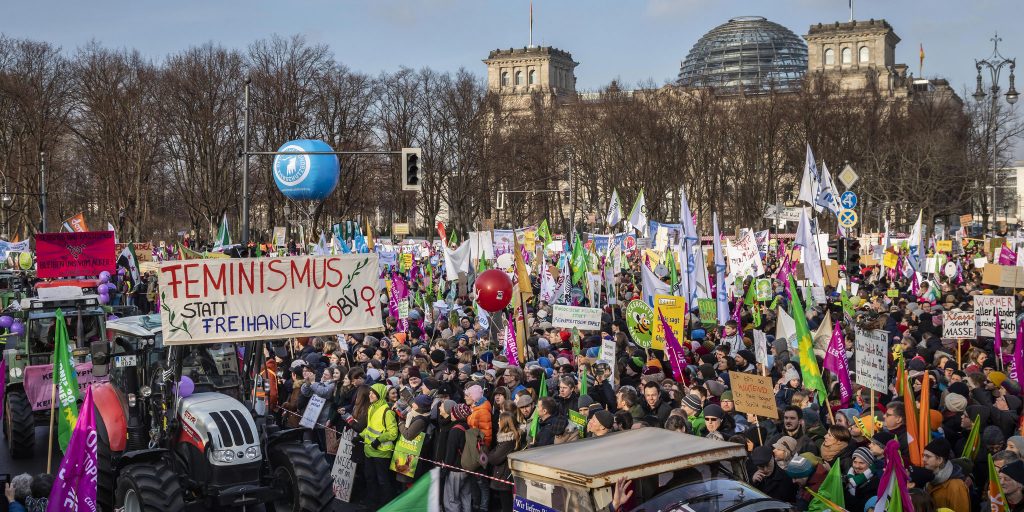35,000, loud, colourful and determined people took to the streets of Berlin today to give agriculure ministers from around the world a message: it’s time to overhaul policies that promote outdated and dangerous industrial farming.
The march took place during an international summit of 70 agriculture ministers, and at a crucial time for future of farming in Germany and Europe. The EU’s Common Agricultural Policy (CAP) is in the process of being reformed, meaning the German Government is deciding what type of agriculture to fund with taxpayers’ money.
In Germany, €6.3 billion of EU agricultural funds are distributed to farms every year, more than three-quarters of which are flat-rate, per-hectare subsidies.
This favours large, industrial farms and squeezes out sustainable smallholders. The 3,300 largest businesses will receive €1 billion a year, while the smallest 200,000 farms will have to share about €700 million.
Hubert Weiger, Chair of BUND/Friends of the Earth Germany, said: “European agricultural policy must be changed: only those who respect animal welfare and protect our environment should receive EU money. We need a strong Europe, but it needs to become more environmentally just and sustainable, and socially fair.”
The march was led by 171 farmers driving tractors, who had travelled from across the country.
“We are fed up with the federal government’s agriculture policy. We work every day to make good, fairly-produced food and we demand political support,” said Moritz Schäfer. The 32-year-old farmer had driven his tractor from Schwalmtal, in the centre of the country, where he manages a 250-hectare farm with 100 cows.
“My cows are out in the pasture, and I produce the feed on site and sow a variety of crops. The insects, water and climate thank me, but the policy does not. Julia Klöckner must stop backing the agribusiness industry and represent a policy for farmers, bees and viable villages.”
2019 marks the ninth year in a row that farmers have travelled to Berlin to demonstrate alongside bakers, beekeepers, cooks, conservationists and civil society against the danger of intensive industrial agriculture. Together, the broad Wir haben es satt (“We’re sick of it!”) alliance campaigns for peasant farming and a better, fairer and more sustainable food system.








